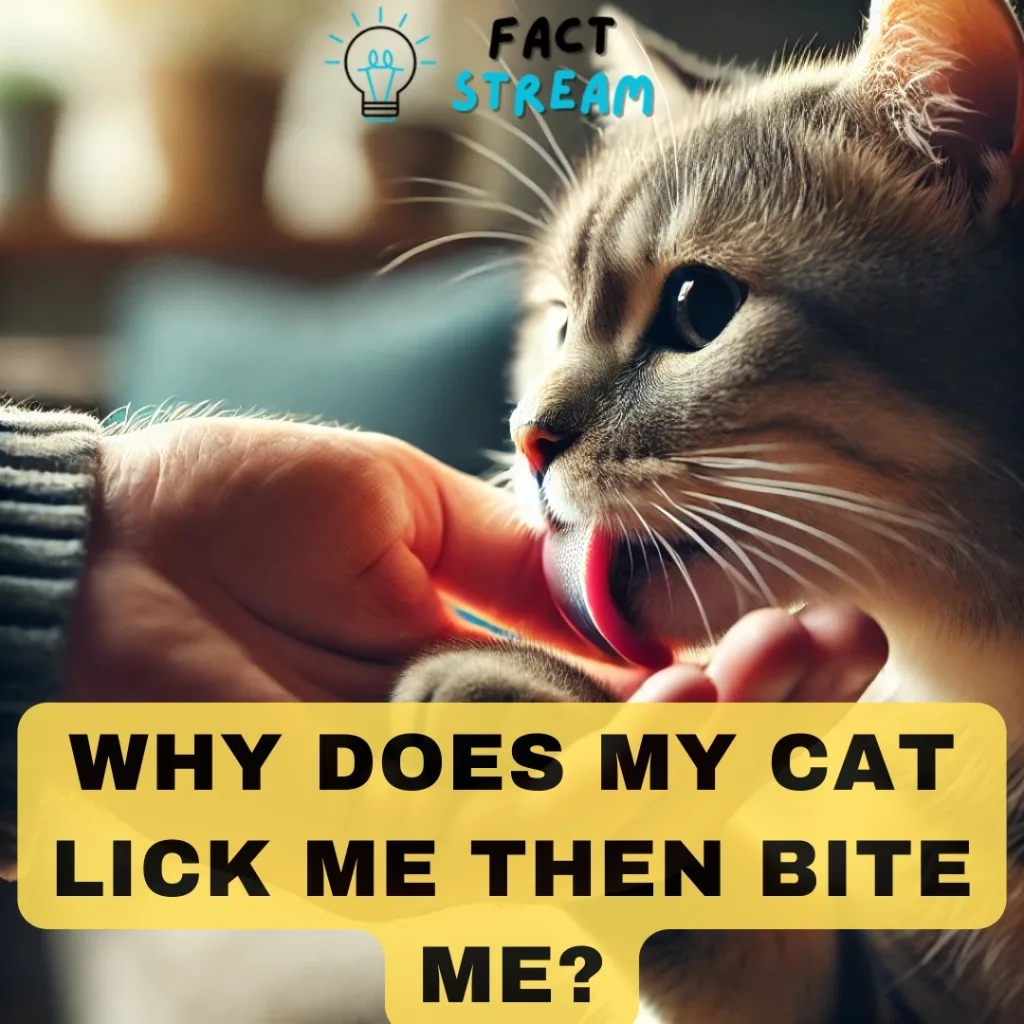The Love Bite: Why Does My Cat Lick Me Then Bite Me?
We’ve all experienced that confusing moment: you’re lovingly petting your cat, lost in a blissful haze of purrs and soft fur, when suddenly—ouch! A sharp bite punctures the peaceful scene, leaving you wondering if your feline friend has a split personality. Why do our cats flip-flop between sweet licks and painful nips? It’s a classic cat conundrum, but with a little insight into their world, we can start to understand this quirky behavior.
The Love Bite: A Misunderstood Gesture of Affection
Sometimes, that seemingly aggressive bite is actually a clumsy attempt at showing affection. Cats communicate differently than humans, and a gentle nip after a lick is their way of saying “I love you!”. Think about how cats interact with each other: they groom each other with licks, but they also use gentle bites to remove mats and debris. So, when your cat gives you a little love bite after a grooming session, they’re treating you like part of their feline family.
Their thick fur and less sensitive nerve endings might make them unaware of how rough their “kisses” can be on our delicate human skin. It’s like an overly enthusiastic hug from a friend who doesn’t realize their own strength.
Why does my cat lick me then bite me while purring?
This common combo often stems from a mixture of love and excitement. The purring signals contentment, but the bite could be an overzealous expression of affection or a playful response to the petting. If your cat bites you while purring, they are probably communicating a complex mix of emotions. It’s possible they are both happy and slightly overstimulated.
Why does my cat bite me gently out of nowhere?
Those seemingly random, gentle nips are likely little love bites, often delivered when you’re least expecting them. Your cat might be trying to grab your attention or remind you of their presence in a sweetly assertive way.
Overstimulation: When Cuddles Reach a Tipping Point
Cats might enjoy petting, but like any independent soul, they have their limits. What starts as a pleasurable experience can quickly become overwhelming, like a song you love that gets annoying after you hear it too many times. This is called overstimulation, and it can trigger a sudden change in your cat’s demeanor, leading to the dreaded lick-bite sequence.
Why does my cat nuzzle me then bite me?
This scenario is a prime example of overstimulation in action. The nuzzling signifies affection and the desire for closeness, but the bite indicates that your cat has hit their sensory limit. They are telling you in no uncertain terms, “Okay, I’ve had enough cuddles for now!”
Watch for the Warning Signs
Before the bite occurs, your cat will likely give you subtle hints that they’re approaching overstimulation. A twitching tail, flattened ears, dilated pupils, or tense body language are all signs that your cat is getting overexcited. Respect their boundaries and give them some space before they feel the need to express their discomfort with teeth.
Why does my cat lick and bite me in the morning?
Cats often follow their own internal clocks, and mornings are prime time for attention-seeking. They might be hungry, eager for playtime, or simply excited to see you after a night apart. Licking and biting could be their quirky way of saying “Good morning!” or “Hey, pay attention to me!”.
Playful Pouncing: Mistaking Your Hand for a Toy
Remember, cats are natural-born hunters, and that instinct doesn’t disappear just because they live in a cozy home. Sometimes, our hands and fingers become the unwitting targets of their playful pouncing. The lick might be a playful way to engage you, followed by a bite that’s meant to be part of the game.
It’s crucial to differentiate between playful nips and genuine aggression. If your cat’s bites are causing pain or breaking skin, it’s time to set clear boundaries and redirect their energy to appropriate toys.
Stress: A Hidden Trigger for Licking and Biting
Just like humans, cats can experience stress and anxiety, and these emotions can manifest in unusual behaviors, including excessive licking and biting. Changes in their environment, such as a move, a new pet, or even loud noises, can trigger stress in cats. If you notice a sudden increase in licking and biting, consider whether anything in your cat’s world has recently shifted.
If you suspect stress is the culprit, consult with your veterinarian to rule out any underlying medical conditions and discuss ways to create a more calming environment for your furry friend.
Understanding Your Feline Friend: A Journey of Patience and Observation
Deciphering your cat’s unique communication style is a rewarding journey. By paying close attention to their body language, vocalizations, and the context of their actions, you’ll learn to understand what your cat is trying to tell you. The lick-bite combo might seem like a contradiction, but with patience and observation, you’ll be able to read between the lines (or should we say, between the licks and bites!) and build a stronger, more harmonious relationship with your enigmatic feline companion.


